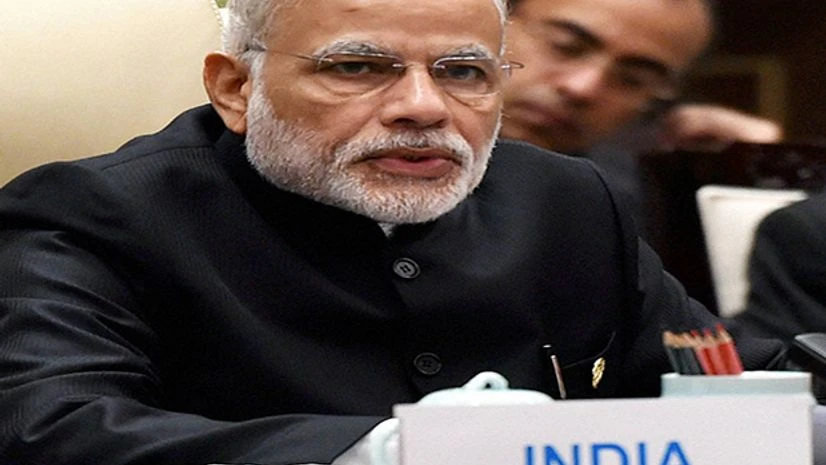Prime Minister Narendra Modi on Monday raised the issues of black money and tax evasion at the G20 Summit here, urging member countries to act against financial corruption.
On the second day of the Summit here, Modi said: "Fighting corruption, black money and tax evasion were central to effective financial governance."
Modi urged the grouping to show full commitment to action against financial corruption and said effective financial governance required action against the corrupt and elimination of safe havens for economic offenders.
"We need to act to eliminate safe havens for economic offenders, track down and unconditionally extradite money launderers and break down the web of complex international regulations and excessive banking secrecy that hide the corrupt and their deeds," Modi said in his address at the G20.
Representing 85 per cent of the world's GDP, the G20 is composed of Argentina, Australia, Brazil, Canada, China, France, Germany, India, Indonesia, Italy, Japan, Mexico, Russia, Saudi Arabia, South Africa, South Korea, Turkey, the UK, the US and the European Union.
Also Read
Making his intervention in the discussion on 'More Effective and Efficient Global Economic and Financial Governance at the G-20 summit', Modi called for further strengthening the global financial safety net.
"We need a regular dialogue between the IMF, Regional Financial Arrangements and Bilateral Swap Arrangements. Important mechanisms like financial stability board should stick to their core mandate."
On tax evasion, Modi reiterated India's support for Base Erosion and Profit Shifting (BEPS) recommendations and calls on countries to commit to the timeline of 2017-18.
"PM professes India's support for BEPS recommendations and calls on countries to commit to the timeline of 2017-18," External Affairs Ministry spokesperson Vikas Swarup tweeted citing the Prime Minister.
India had earlier declared its commitment to implementing BEPS, which advocates avoidance of stateless income and plugging loopholes by which entities avoid tax in operating across borders.
The Paris-based think-tank of developed nations, the Organisation for Economic Cooperation and Development's (OECD) Base Erosion and Profit Sharing deliverables advocate consistent tax rules throughout the world.
In this connection, a Central Board of Direct Taxes (CBDT) committee on taxation of e-commerce had earlier this year suggested an "Equalization Levy" of between 6-8 per cent for business-to-business digital transactions.
This recommendation had formed the basis of Finance Minister Arun Jaitley's Budget 2016-17 proposal for an equalization levy of 6 per cent in order to tax income accruing to foreign e-commerce companies from India.
The committee has suggested that the levy be imposed on the amount paid to a non-resident by an Indian resident for specified digital services.
The specified services would include online advertising or any services, rights or use of software for online advertising, including advertising on radio and TV, designing, hosting or maintenance of websites, digital space for website, e-mails, blogs, facility for online sale of goods or services or collecting online payments.
It would also include use or right to use or download online music, online movies, online games and online software applications accessed or downloaded through the Internet or telecommunication networks.
The committee has suggested introduction of the tax based on the BEPS principle earlier endorsed by G20 countries and the Paris-based OECD.
This fiscal's budget has proposed that a person making payment to a non-resident, without a permanent establishment, exceeding in aggregate Rs 1 lakh in a year for online advertisement, will withhold tax at 6 per cent of the gross amount paid as equalization levy. The levy will only apply to business-to-business transactions.

)
